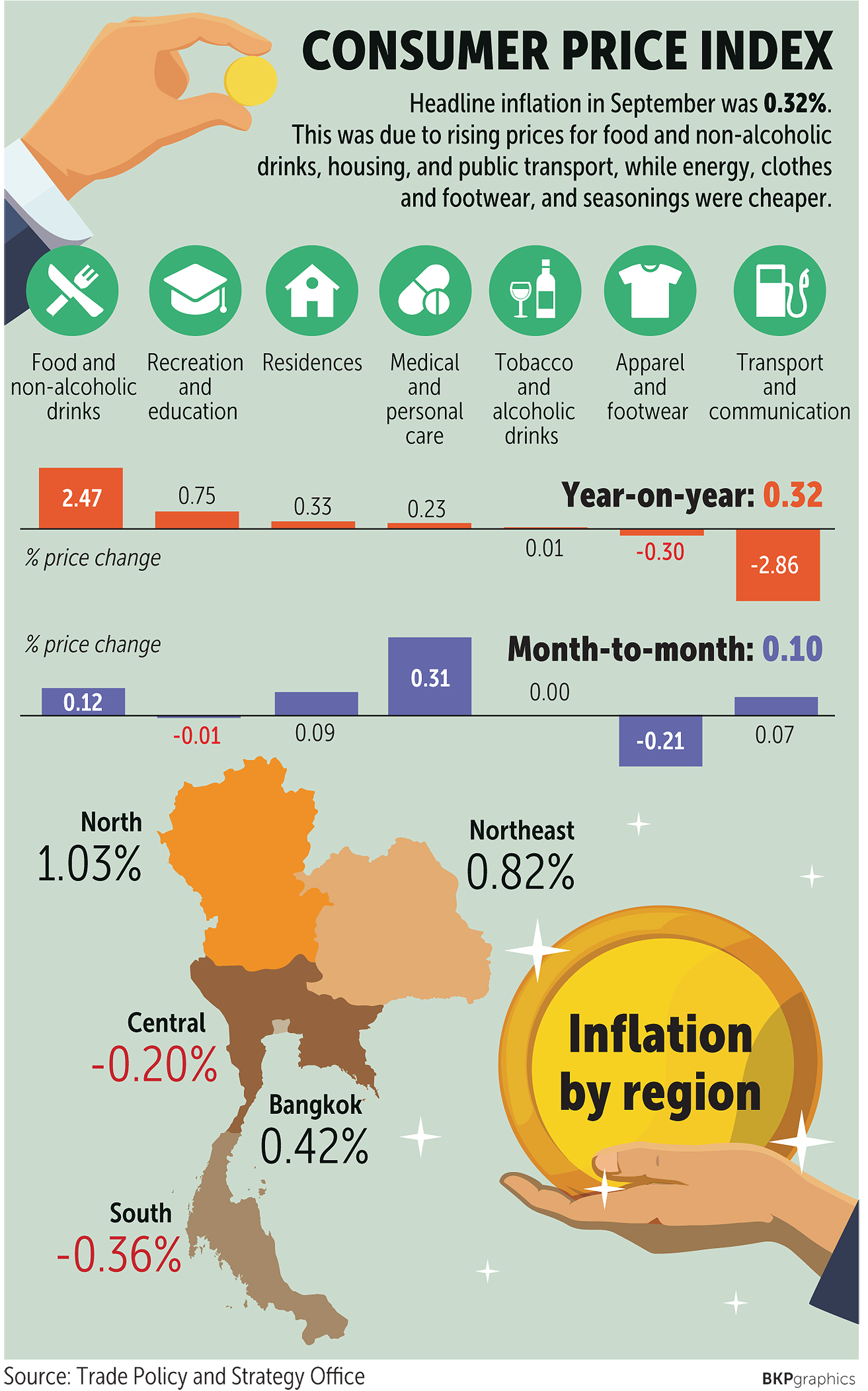Consumer prices, which gauge headline inflation, edged up 0.32% in September from a year earlier, the lowest level since January this year, mainly due to declining energy prices.
The Commerce Ministry said yesterday that consumer price increases continued to slow in September after rising 0.52% in August, 0.98% in July, 0.87% in June, 1.15% in May, 1.23% in April and 1.24% in March.
The rise in September prices was largely due to higher food and non-alcoholic drink prices, particularly for milled rice, flour, fruit/vegetables, pork, meat, poultry and fish.
Energy prices fell for the fifth straight month, by 6.4% year-on-year, after a decline in global oil prices.
On a month-to-month basis, consumer prices in September rose 0.10% from August, boosted by food prices, particularly for milled rice, flour and flour products, and glutinous rice.
Of the 422 product and service items used to gauge inflation, the prices of 226 items rose from August, including sticky rice, eggs, pork, processed food, electric fees, pork and chillies. Prices decreased for 104 items, including oil, cooking oil, cabbage, powdered milk and oranges. The remaining items saw no change.
Annual core inflation, which excludes volatile food and energy prices, was 0.44% in September, easing from 0.49% in August.
For the first nine months, headline inflation was 0.81%. Core inflation was 0.54% in the same period.
Pimchanok Vonkorpon, director-general of the Trade Policy and Strategy Office, said consumer prices grew at a slower rate throughout the third quarter and were at their lowest in September. This was largely from a decline in petrol prices, while the index for raw food continued to increase and other consumer goods remained stable.
Value-added tax collection bounced back for the first time in three months, and the consumer confidence index remained in positive territory, signalling that the overall inflation outlook (excluding energy) is still favourable and consistent with changes in supply and demand conditions, Ms Pimchanok said.
In early September, the Commerce Ministry lowered the full-year inflation forecast to 0.8-0.9%, the lowest in two years, from the 0.7-1.3% range seen in July, citing lower oil prices.
"The inflation rate is unlikely to exceed 0.9% this year and will be the lowest rate since 2017," Ms Pimchanok said.
She said flooding and drought had no effect on inflation, nor would the Vegetarian Festival.
The 1,000-baht cash giveaway and 15% cash rebate should drive a spending spree among consumers but are unlikely to affect inflation because manufacturers are not raising prices, Ms Pimchanok said.
Thanavath Phonvichai, vice-president for research at the University of the Thai Chamber of Commerce, said September's lower inflation reflected the country's economic slowdown and fragile purchasing power.
The government's stimulus scheme must be monitored to determine the impact on inflation, he said.
